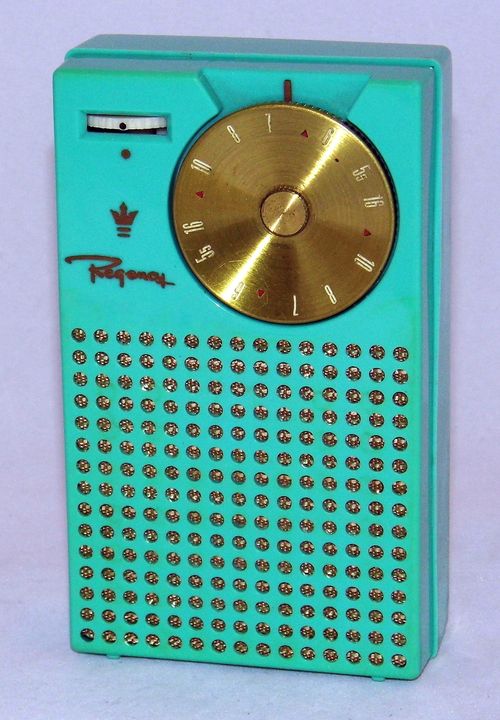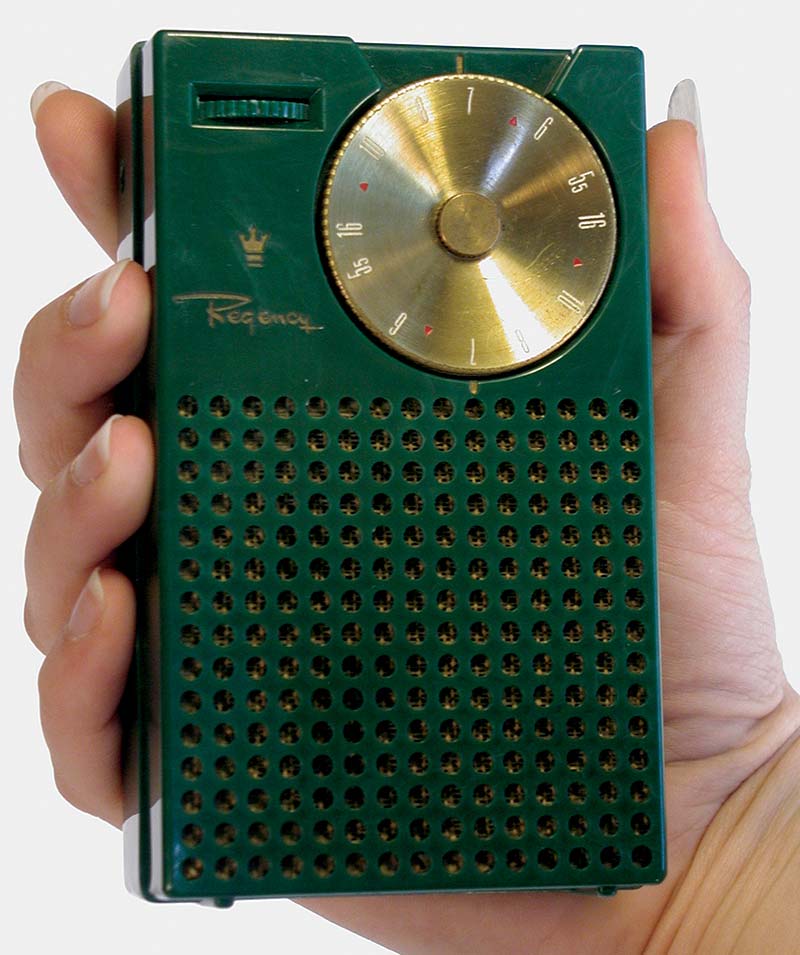
History
The invention of the transistor radio receiver was a watershed moment in the history of technology and communication. Transistor radios, introduced in the 1950s, were a major step forward from the bulky, vacuum-tube-based radios that came before them. The Regency TR-1 was the first commercially successful transistor radio, debuting in 1954. This gadget, driven by transistors rather than vacuum tubes, was smaller, more energy-efficient, and longer-lasting, making it a popular choice among consumers.
Usage
Transistor radios rapidly became a cultural phenomenon. Their portability enabled users to carry their music and news with them wherever they went, which was impossible with older radios. These radios were ubiquitous in homes, automobiles, and even outdoor activities. Whether it was listening to the newest singles on the beach, catching up on news during the daily commute, or watching a baseball game at the park, the transistor radio enabled it all. It also served an important role in emergency situations, delivering valuable information during power shortages and natural catastrophes.

Legacy
The transistor radio receiver left a lasting legacy. It democratized access to information and entertainment, bridging urban-rural divides and making it simpler for people from all backgrounds to stay connected. This breakthrough paved the way for the creation of current portable electronic devices, affecting the form and functionality of items such as MP3 players, smartphones, and tablets.
Furthermore, the transistor radio made a big contribution to the music industry. It helped to popularize rock ‘n’ roll and other genres, reaching out to younger audiences and sparking cultural transformations in the 1960s and beyond. The radio’s importance in shaping public opinion, distributing news, and giving a forum for varied views cannot be emphasized.
To summarize, the vintage transistor radio receiver represents technological advancement and cultural transformation. Its origins reflect a period of fast innovation, its application altered daily life, and its legacy continues to affect modern communication and entertainment gadgets. The modest transistor radio is still a treasured piece of history, affectionately recalled by those who witnessed its heyday and valued for its long-lasting impact on society.



















